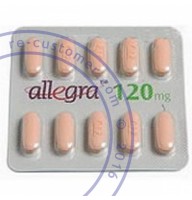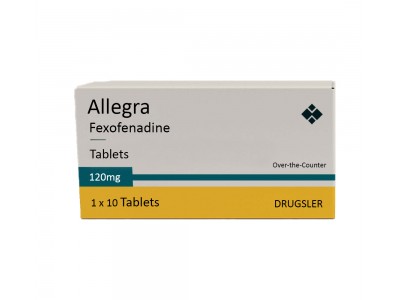Allegra (Fexofenadine) is a popular antihistamine medication commonly used to relieve symptoms of allergies such as hay fever and urticaria. This article explores the benefits, potential side effects, and recommended uses of Allegra, along with important safety considerations.
Understanding Allegra and Its Use in Allergy Treatment
Allegra for allergies is a popular choice due to its effectiveness in managing symptoms without causing significant drowsiness. Many people find relief from symptoms such as sneezing, runny nose, and itchy eyes by using Fexofenadine 180 mg daily or as directed by their healthcare provider. This antihistamine specifically targets histamine receptors, which reduces the body’s allergic response.
Key Benefits of Allegra (Fexofenadine)
One of the primary benefits of Allegra is its low incidence of drowsiness, which makes it a preferred option for daytime allergy management. The Fexofenadine antihistamine benefits also extend to relieving skin-related allergic reactions such as hives. Additionally, Allegra works relatively quickly, often providing noticeable relief within one to two hours.
How Allegra Compares to Other Antihistamines
When comparing Allegra vs other antihistamines, Allegra stands out for its non-drowsy formulation. While other antihistamines like diphenhydramine are highly effective, they often cause sedation, which is not ideal for daytime use. Allegra’s effectiveness and minimal side effects make it a strong choice for people needing long-term allergy control without sedation.
Recommended Dosage and Usage Guidelines
The standard dosage of Allegra for adults is usually Fexofenadine 180 mg daily, though it’s crucial to follow individual dosing instructions provided by a healthcare professional. For mild symptoms, a lower dose may be sufficient, while more intense symptoms may require a full daily dose for optimal relief. A proper Allegra dosage guide ensures users experience benefits while minimizing risks.
Potential Side Effects of Allegra
While Allegra is generally safe, it can still cause side effects. Some people may experience mild dizziness, headache, or stomach discomfort. It’s essential to monitor for Allegra side effects and consult a healthcare provider if symptoms persist or worsen. Severe side effects are rare but should be addressed immediately if they occur.
Interactions to Be Aware Of
Another important consideration is Fexofenadine interactions. Allegra can interact with other medications, particularly antacids that contain aluminum or magnesium. Such interactions may reduce the effectiveness of Allegra, so spacing out doses is advised. Additionally, it’s best to consult a healthcare provider if combining Allegra with other drugs.
How Allegra Provides Sinus and Allergy Relief
For those struggling with sinus-related issues, Allegra for sinus relief can be helpful, as it reduces inflammation in nasal passages, making it easier to breathe. This effect is especially beneficial during allergy seasons when pollen and other allergens are high in the air.
Duration of Allergy Relief with Allegra
On average, Allegra allergy relief duration lasts about 24 hours, allowing for convenient once-daily dosing. This long-lasting effect is one of the main advantages of Allegra, making it suitable for people with busy schedules who cannot frequently take medication throughout the day.
Long-Term Use and Safety of Fexofenadine
Concerns about Fexofenadine safety long term are common, particularly among individuals who rely on antihistamines regularly. Research has generally shown that Allegra is safe for prolonged use; however, it is still advisable to discuss any long-term medication plan with a healthcare provider. Regular follow-up appointments can help ensure that the medication remains effective and safe.
In conclusion, Allegra (Fexofenadine) is a well-tolerated antihistamine that offers several advantages for those managing allergy symptoms. Its low side-effect profile and minimal sedation make it a favorable option for daytime allergy control, especially when compared to other antihistamines. If you are considering Allegra for allergy relief, consult with a healthcare provider to determine the appropriate dosage and address any specific health concerns.

